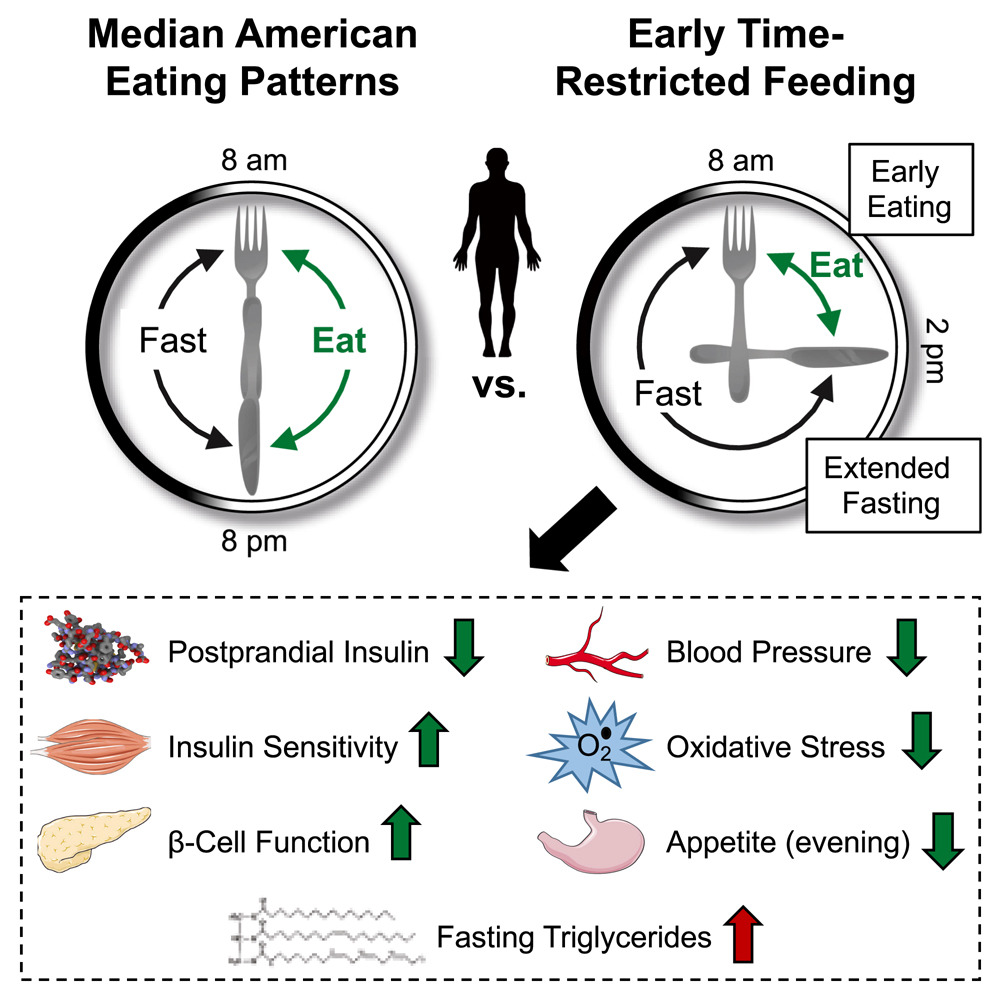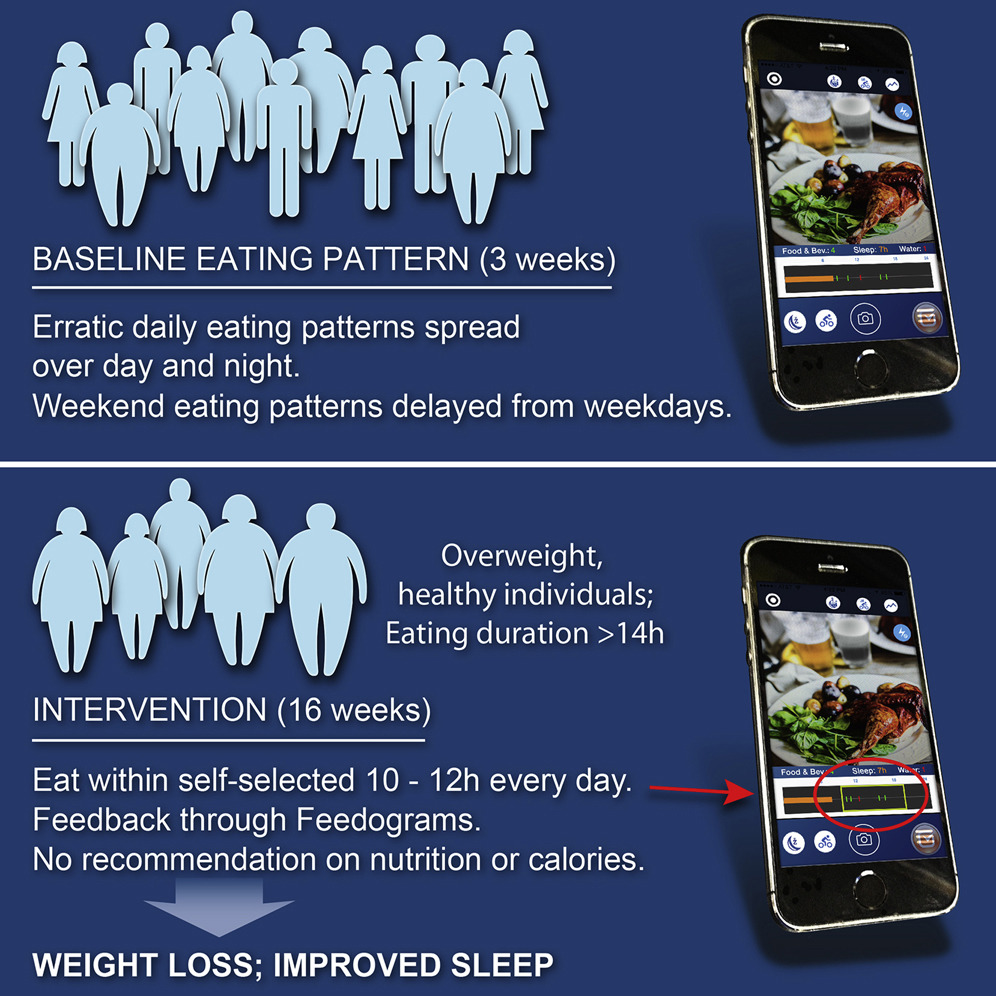Every major religion and culture has promoted fasting for millennia.
After a meal, glucose is released in the bloodstream. Cells use it for energy. Insulin is released and any excess glucose that is unused is stored in the fat cells as fat. We need to let the insulin levels come down, in between meals, so that the fat cells release the stored glucose, to be used as energy by the cells. This is the basis for intermittent fasting.
eTRF (early time restricted feeding)
University of Alabama conducted a study on prediabetic men. One group was allowed to eat for 8 hours, with dinner at 3 PM. The other group was allowed to eat for 12 hours. The 8 hour group had lower insulin levels, improved insulin sensitivity, lower blood pressure and most importantly had decreased appetite.

Here is another study from La Jolla. They charted dietary habits using a smartphone app. This study introduced the concept of metabolic jetlag for me – i.e. we wake up late over weekends and therefore meal times vary. The authors postulate that the relationship between poor sleep quality and metabolic syndrome may be related to increased caloric intake.

Take home points:
- 16-8 method : Fast for 16 hours, eat for 8 hours. Eat meals between 8 am to 2 pm.
- Don’t snack in between meals. Never snack after dinner.
- Wake up and eat breakfast at the same time each day.
- Combine intermittent fasting with a plant based diet for the best bang for your buck!